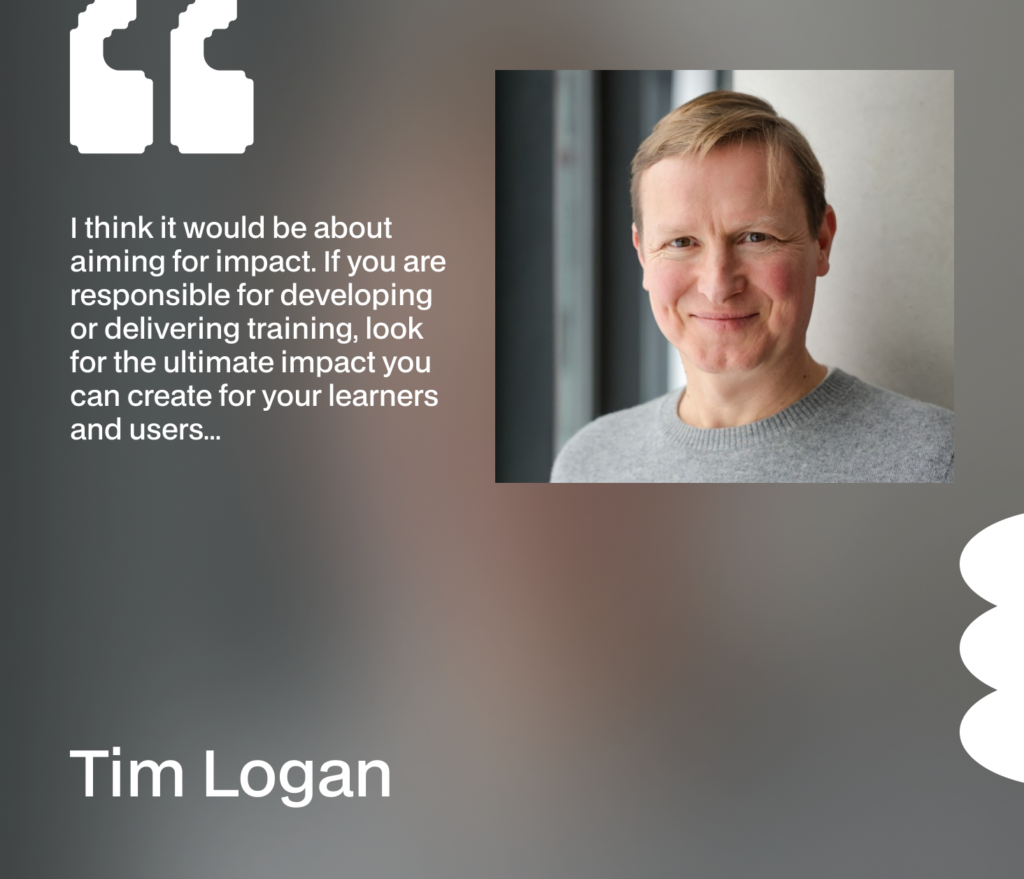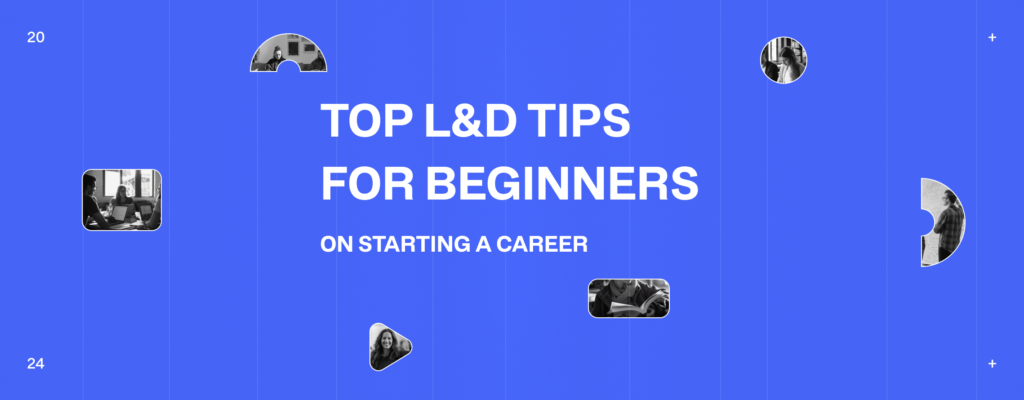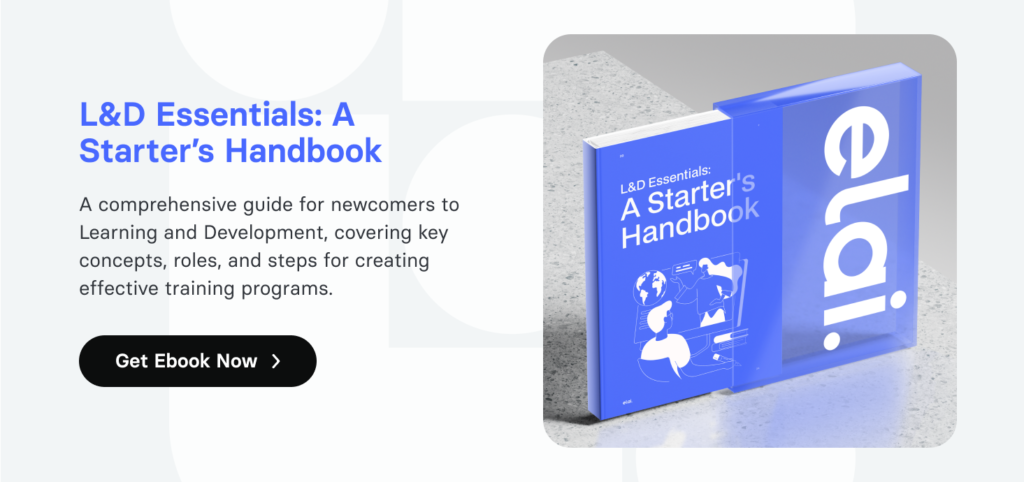Embarking on a career in Learning and Development can be both exciting and challenging. To help guide newcomers, we posed a crucial question to experts in Season 2 of EdTalks: ‘’What do you suggest to a beginner in the field of L&D?’’ The following article presents the information given in their answers as a summary containing a number of useful suggestions and tips for L&D, and thought-provoking ideas.
From fostering curiosity and building portfolios to joining supportive communities and concentrating on learners’ positive effects: these L&D tips for beginners come from key representatives of the industry. Regardless if you are newly starting in the L&D journey, or changing career paths into L&D, or even developing your methods, their experience will encourage and offer a good starting point. Now let’s dive in!
Tamara Perminova
I guess it’s connected to the previous question. For me, it’s learning something new every day and finding time for that. Book your schedule—your busy working calendar, your busy daily planners, to-do lists, and so on. Book the time for your own development. Let it be one page of a book, one new resource, one new tool, Microsoft—anything. Just learn something new every day. That way, you will grow yourself, and you will always have something to share with your learners or colleagues.

Diana Oliveira
I would say that you need to really make an effort to understand how people work, especially each audience. You need to use your empathy and active listening. It’s very important to do a program that really meets people’s expectations and needs. That’s why I say we need data sometimes to assess what is important. Really listen to people.
I think that is a very good starting point. Also, a little bit of curiosity is essential because things are always changing, and you need to always look for trends.
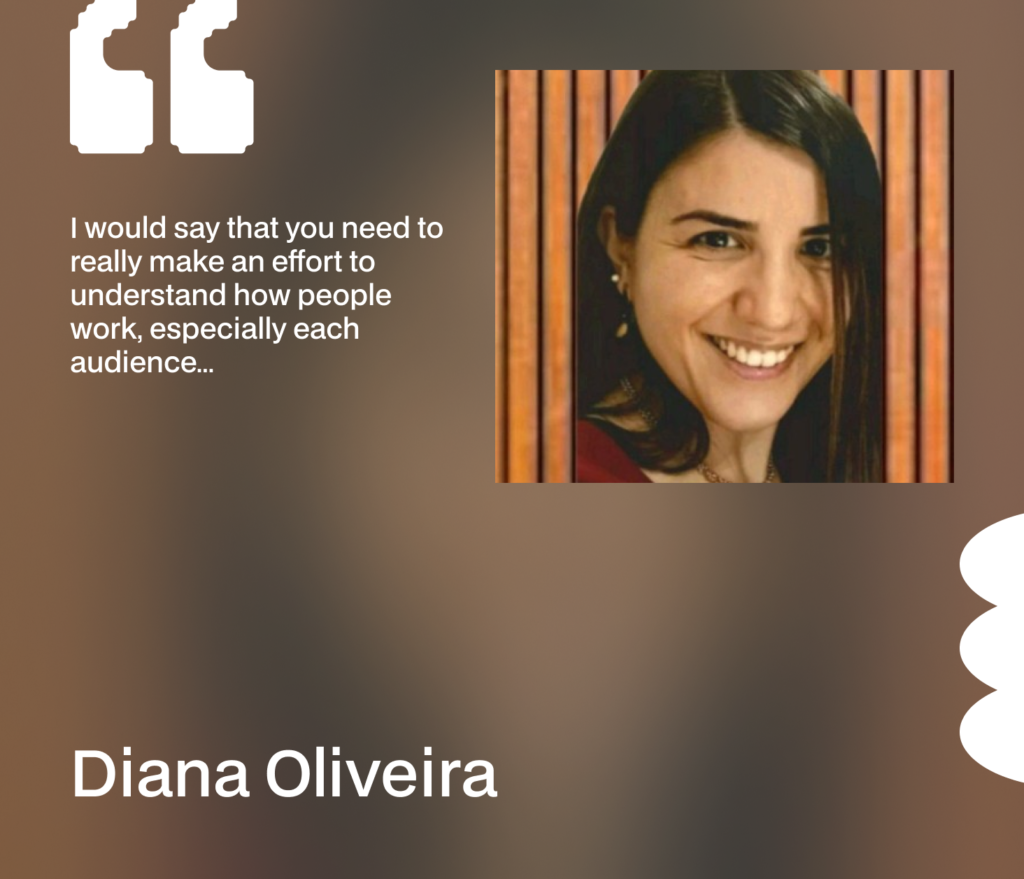
Giuseppe Perrone
If I have to be really specific, I would say join L&D Shakers because it’s the community where I grew into the profession. In general, I think a community is—I wouldn’t say needed—but, to me, it completely changed the way I approach the profession.
It’s where I learned how to get myself seen, how to start my career, how to interface with other professionals, and what is needed to be a freelancer. It made me interested in actually researching what is required. For me, it was the L&D Shakers, but for others, it could be something else.
Having a community—someone you can always go to for suggestions, support, or to give back when you’ve learned enough to support others—is essential. Or at least, it’s what really kickstarted me into doing what I love.
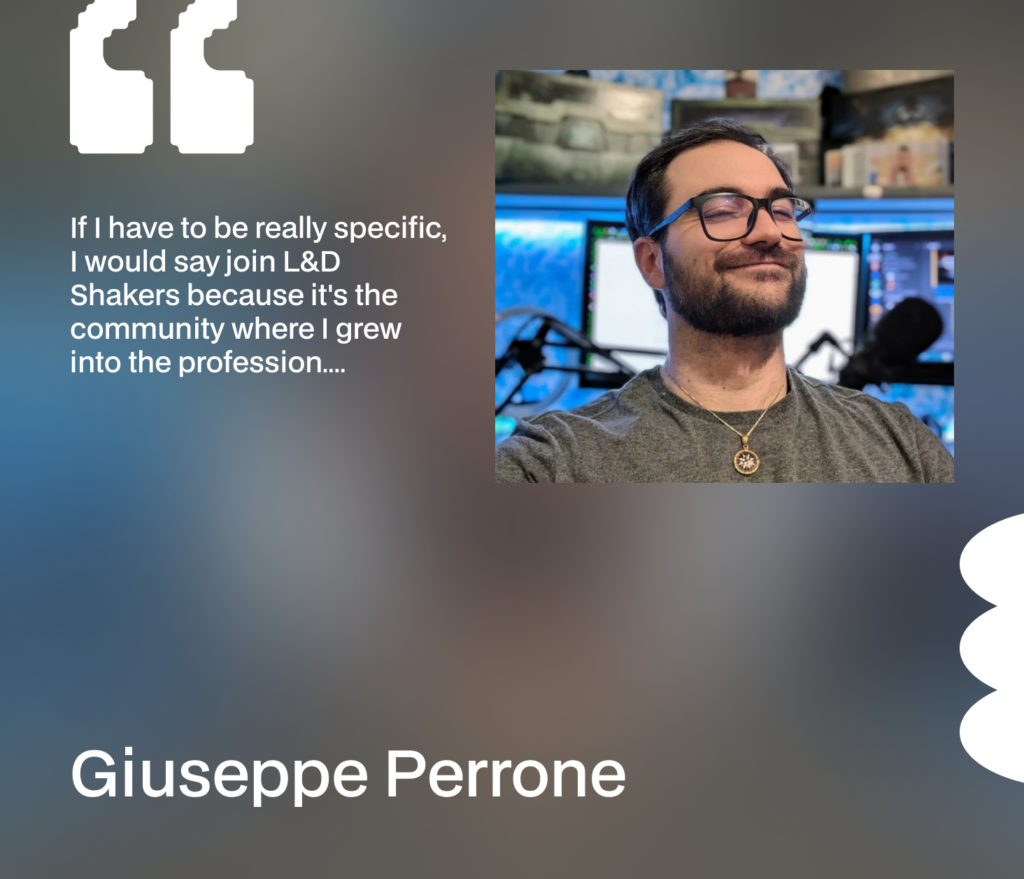
Ren Narciso
For anyone who’s starting out, I always say this: start by volunteering. It’s a great way to grow your skills and your confidence. That’s how I started in instructional design. I grabbed any opportunity to learn and expand my portfolio.
In this role, we don’t care as much about degrees; what we care about is your experience and portfolio. Volunteering is the quickest—and I’d say the most rewarding—way to do this. You learn a ton. You don’t just design and develop, but more importantly, you learn how to work with clients, SMEs, and learners. It’s good for you and good for them.
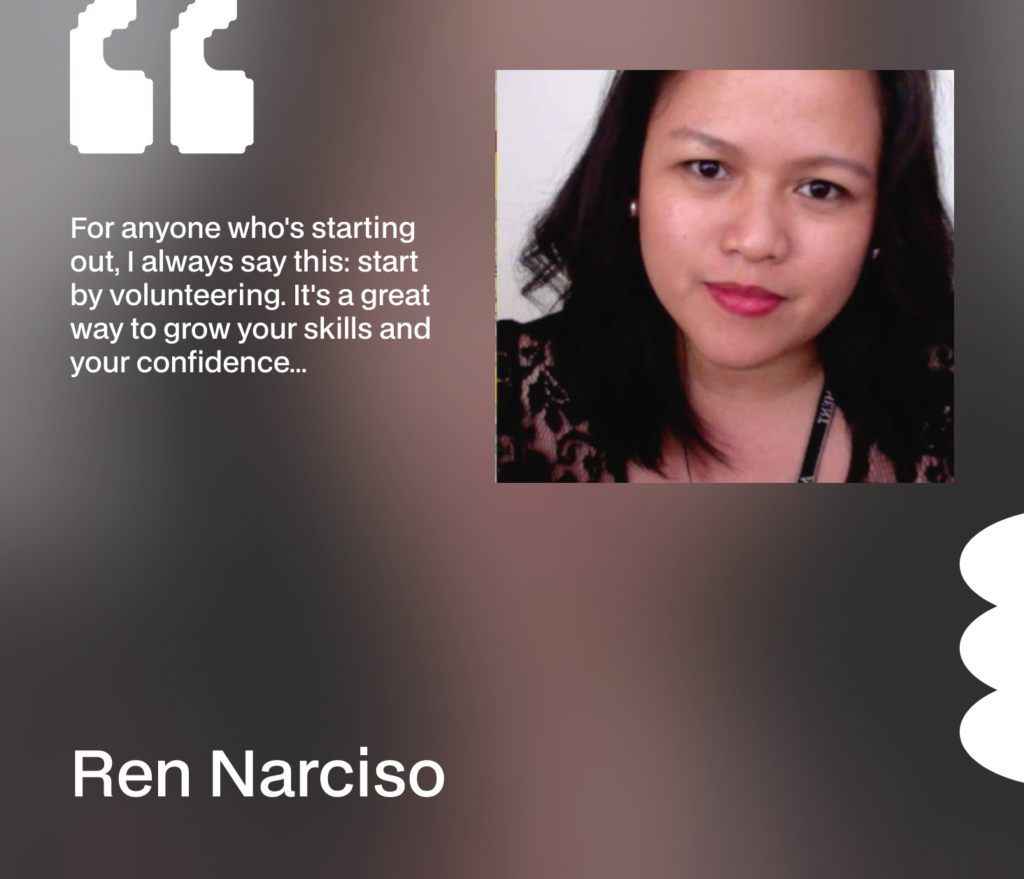
Anastasiia Naumenko
I would add: never stop learning yourself. Never underestimate taking another course just to learn what’s happening right now. You can always take something out of it. This is the experience that actually helps you grow yourself. So, never stop learning and never stop practicing.
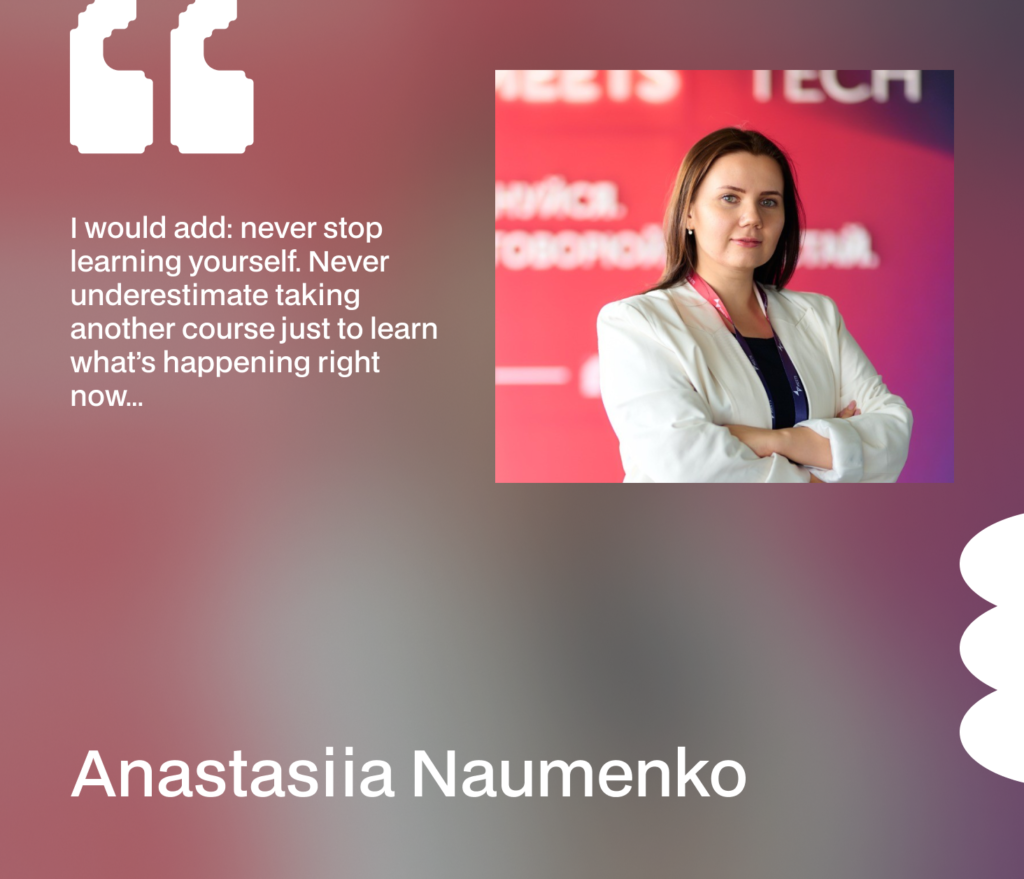
Mike Taylor
Always be curious. I think that goes hand in hand with this idea of thinking like a marketer. You know, we talked about how they both have common goals. I would say that sometimes marketers are a bit better at focusing on understanding and engaging their audiences and then demonstrating the value to their stakeholders.
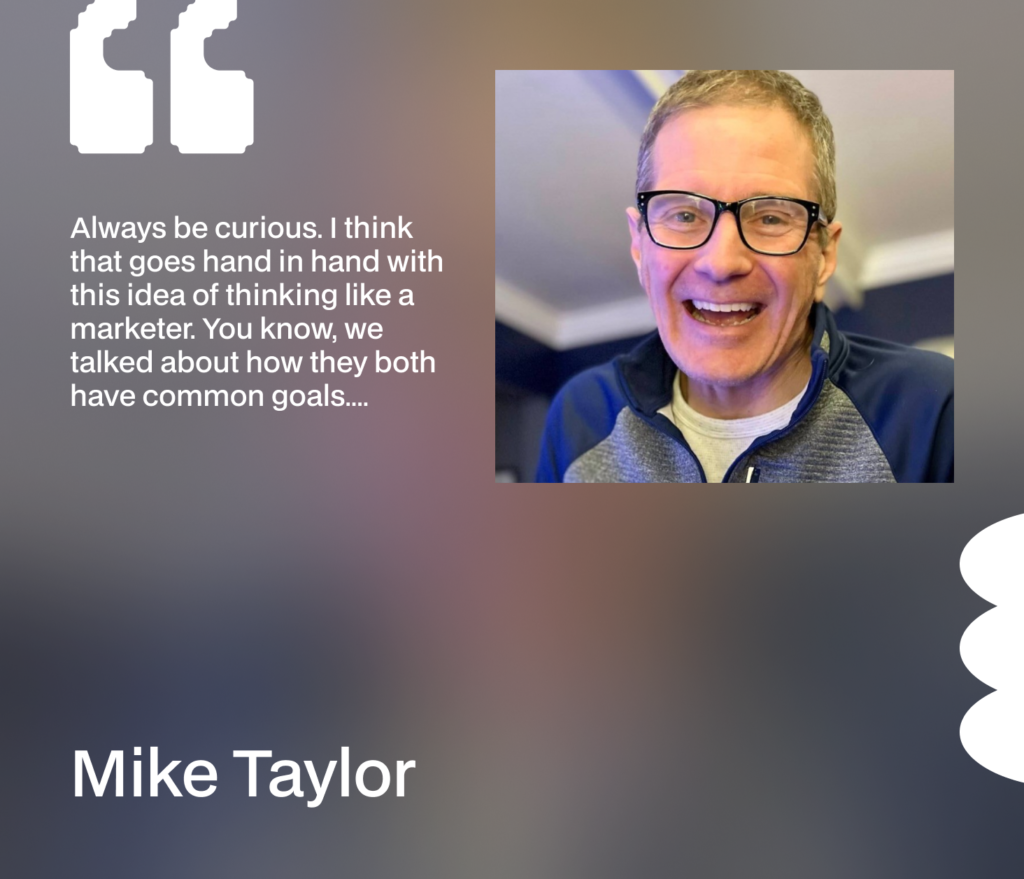
Dr. Steve Ritter
I would say: balance your education. Understand learning science and statistics in addition to technology. If you come from a technology area, focus on learning science; if you come from a learning science area, focus on statistics and technology.
Get that balance because it’s really hard to succeed without at least some familiarity with all those fields. I think it’s really hard to be too much of a specialist.
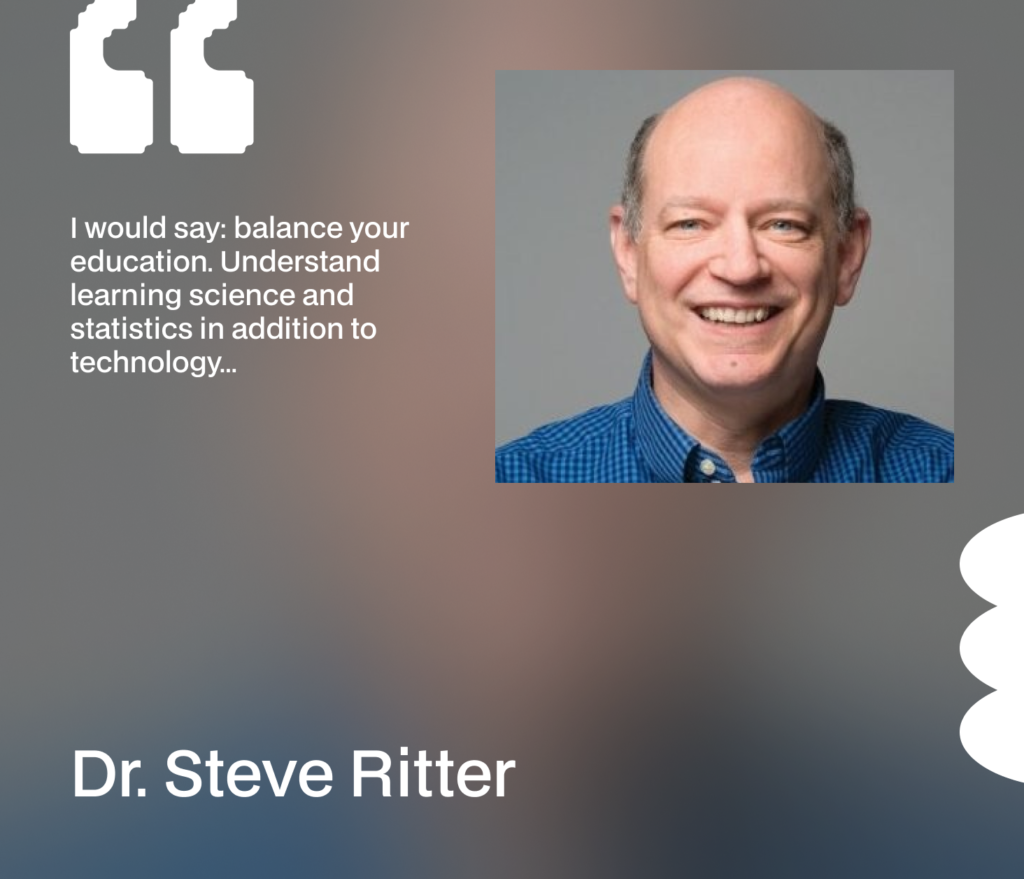
Unekwu-Ojo Shaibu
For me, it’s really about finding an expert in the field and then asking them questions. Personally, I just never stop asking questions. The idea is to update my model to learn how experts think in the field.
Also, make recommendations when you have one. It can be tempting to stay in the learning space, but if there’s a good recommendation or you’ve read something online, feel free to share it. You could get corrected, or it could grow into something big.
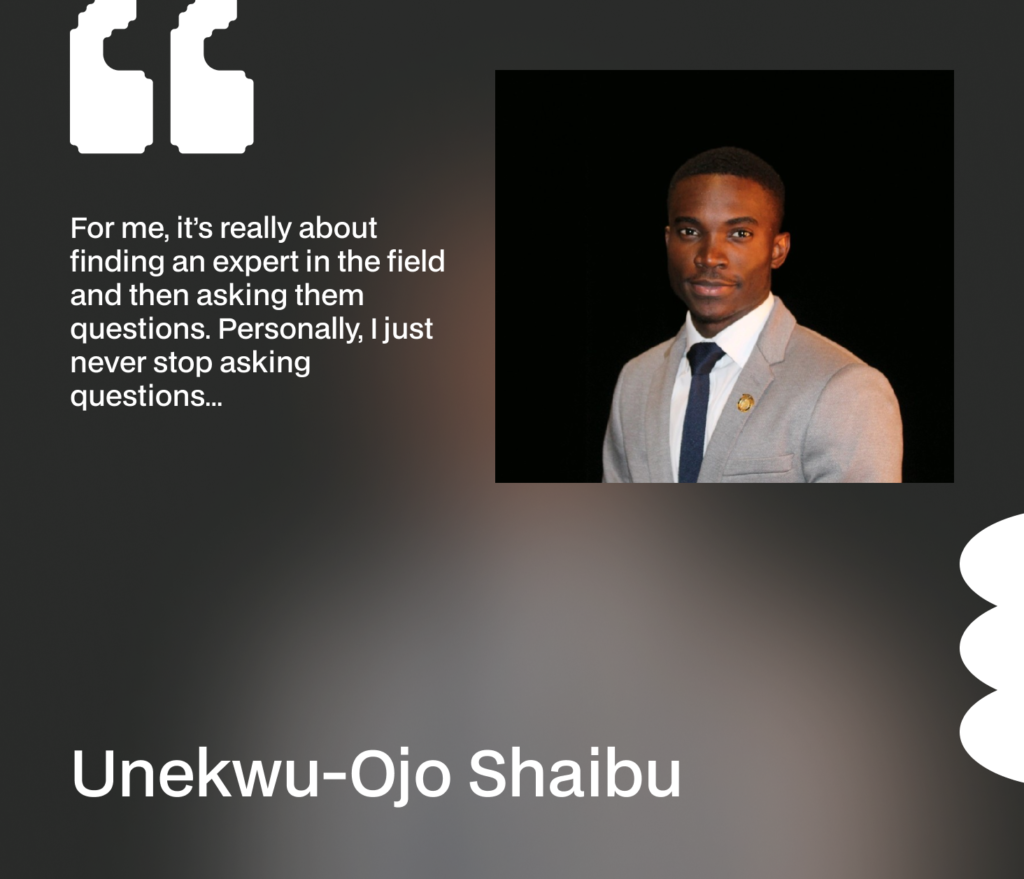
Anna Danylenko
I have some advice, and I think it’s not only for beginners in Learning and Development. I heard it from my mentor: don’t fall in love with your idea or your solution. Flirt with them. Fall in love with your client’s problem, and make innovation happen.
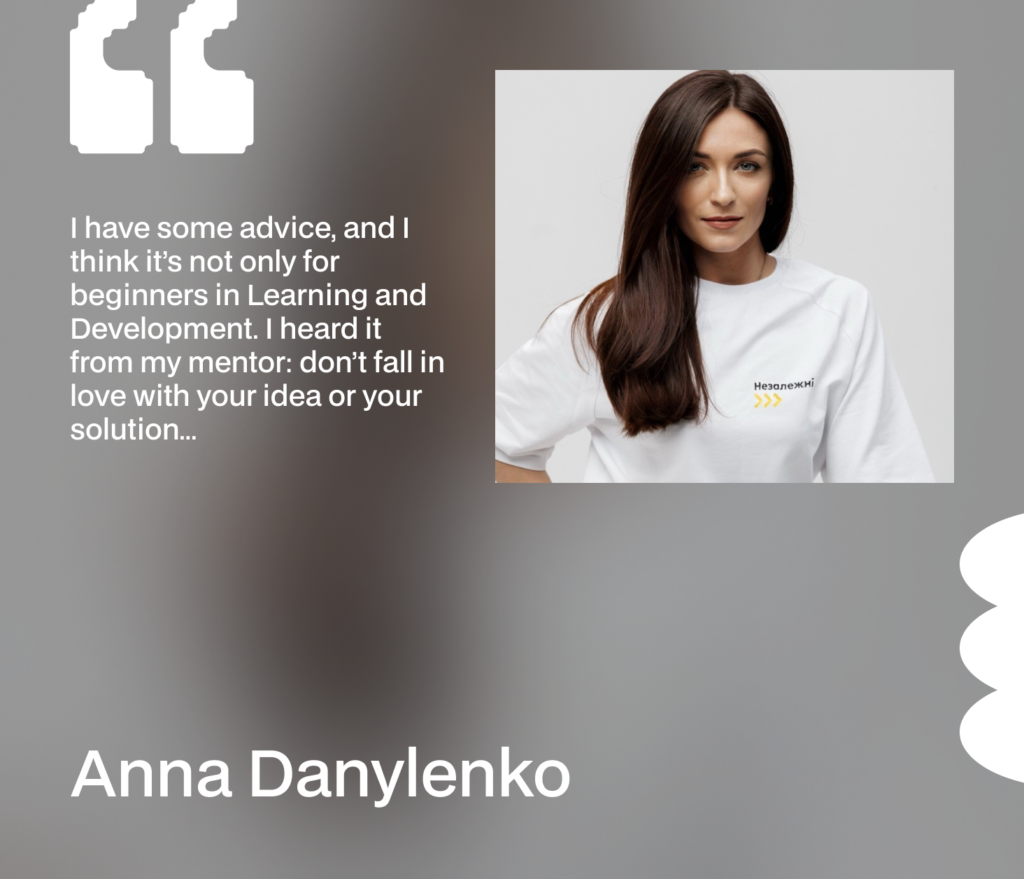
Imran Tanveer
For starting out, I keep getting this question quite often: how do you become so experienced in L&D, or how do you manage to reach leadership positions or head-of-department positions? My answer is always this: It’s not about becoming the lead of any department. It’s about learning leadership skills.
So, I would advise not to rush.
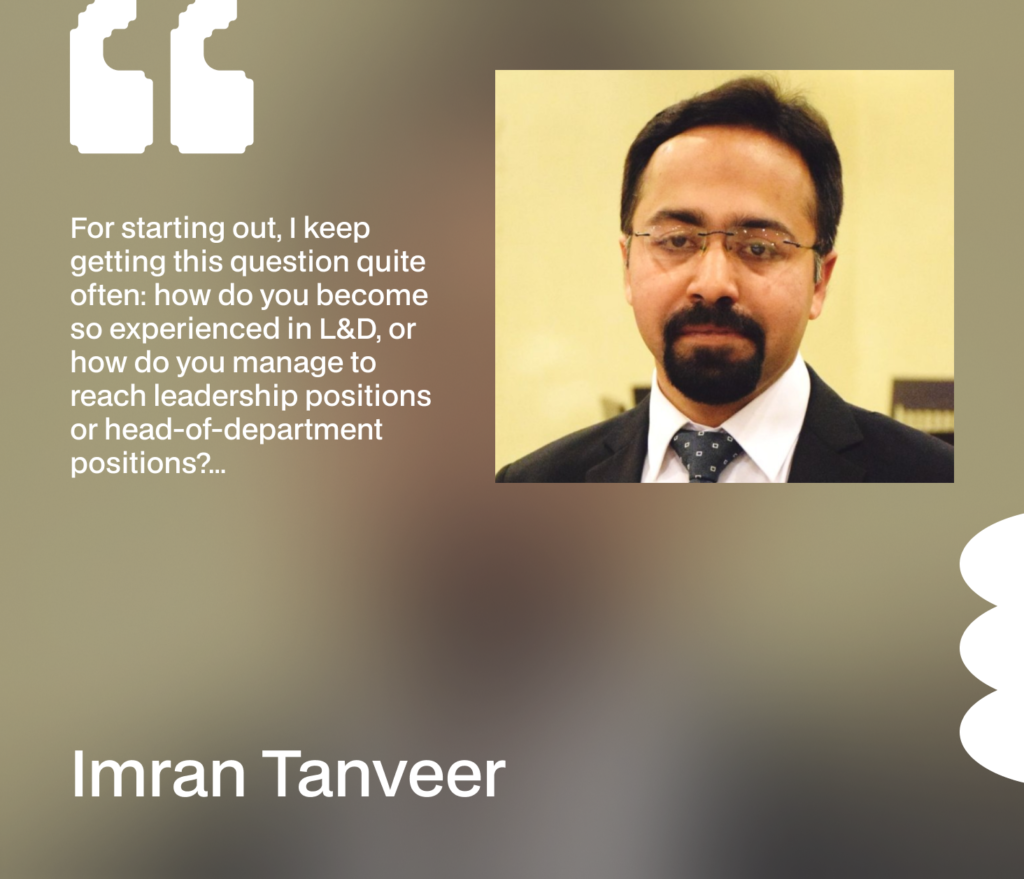
Anser Aly
One piece of advice—maybe two. The first one is the learner, and the second is measurement.
What I mean by learner first is always keeping the end user in mind at every stage. Essentially, designed for the learner. How do you do that? Because I know it’s easier said than done, try to live a day in your learner’s life. Put yourself in their shoes. Ideally, spend time with them, ask them questions, understand their challenges, and try to experience their day as closely as possible.
Only then can you put the learner first and design something that works for them.
The second piece is around measurement. For any program you design, define upfront what success looks like, and then work backward from there.
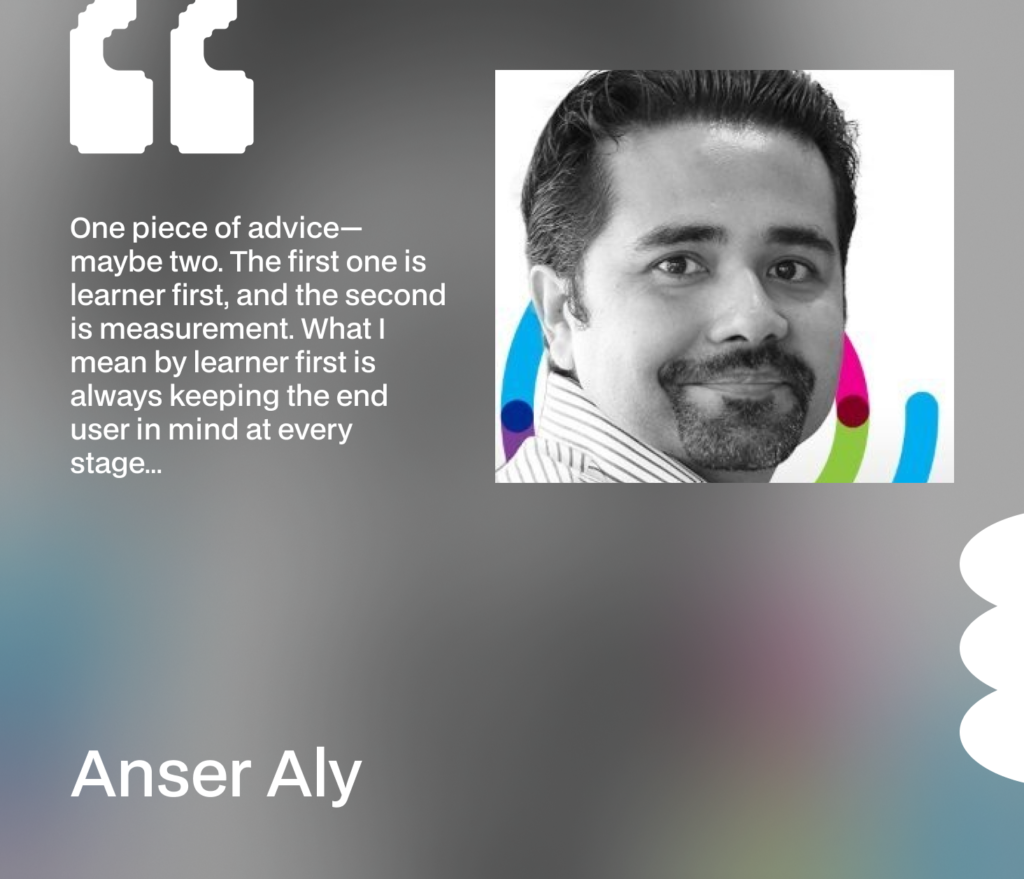
Tim Logan
I think it would be about aiming for impact.
If you are responsible for developing or delivering training, look for the ultimate impact you can create for your learners and users. Even if the subject matter is something like skills at a certain level using a certain kind of system, those skills or knowledge alone aren’t what’s going to motivate the learners.
You have to aim higher—look for value, purpose, or something tied to their identity. Find that deeper impact. That’s what will truly motivate learners.
